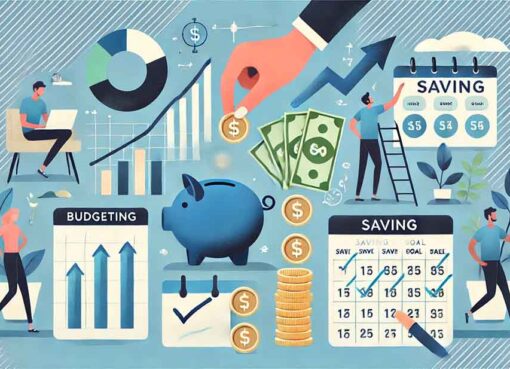Pros and Cons of Borrowing
Pros and Cons of Borrowing: What You Need to Know
Borrowing money is a common financial tool that helps individuals and businesses manage expenses, invest in opportunities, or cover unexpected costs. However, taking on debt comes with both benefits and risks. Whether you’re considering a personal loan, mortgage, credit card, or business loan, it’s crucial to weigh the pros and cons of borrowing before making a decision.
In this article, we’ll explore:
- The advantages of borrowing money
- The downsides of debt
- When borrowing makes sense and when to avoid it
- How to manage debt responsibly
By understanding the pros and cons of borrowing, you can make informed financial choices that align with your goals.

Pros of Borrowing Money
While debt is often viewed negatively, borrowing money can provide several financial advantages when used correctly.
1. Helps Build Credit History
Taking out loans and using credit responsibly helps establish and improve your credit score. A strong credit profile makes it easier to qualify for mortgages, auto loans, and better interest rates in the future.
2. Access to Large Purchases
Most people can’t afford to buy a home or car outright. Borrowing allows you to make large purchases without depleting your savings.
3. Emergency Financial Relief
Loans and credit cards provide a financial cushion during unexpected expenses, such as medical bills, home repairs, or job loss.
4. Investment and Business Growth
Entrepreneurs and businesses often rely on borrowing to expand operations, purchase equipment, or fund new projects. A well-planned loan can lead to higher revenue and long-term success.
5. Flexible Repayment Options
Many lenders offer flexible repayment terms based on your budget. You can choose between fixed or variable interest rates, long or short loan terms, and different payment schedules.
6. Leverage for Better Financial Opportunities
Borrowing can be used strategically to invest in education, real estate, or stocks, leading to higher income and wealth growth over time.
7. Lower Interest Rates for Certain Loans
Compared to credit cards, loans like mortgages, auto loans, and student loans usually have lower interest rates, making them a cost-effective financing option.
Cons of Borrowing Money
While borrowing has benefits, it also comes with risks and potential financial consequences if not managed properly.
1. Interest Costs Can Be Expensive
Borrowing money always comes with interest, and depending on the loan type, high-interest rates can significantly increase the total cost of repayment.
2. Debt Accumulation and Financial Stress
Taking on too much debt can overwhelm your finances, leading to stress, anxiety, and difficulty managing monthly expenses.
3. Risk of Default and Credit Damage
Missing loan or credit card payments negatively affects your credit score, making it harder to qualify for future loans and increasing borrowing costs.
4. Potential for Overborrowing
Easy access to loans and credit cards can lead to excessive spending, trapping borrowers in a cycle of debt.
5. Secured Loans Require Collateral
Loans like mortgages and auto loans are secured by collateral, meaning you risk losing your home or car if you default on payments.
6. Prepayment Penalties
Some loans charge a penalty for early repayment, preventing borrowers from paying off debt faster without extra fees.
7. Economic and Interest Rate Fluctuations
For loans with variable interest rates, monthly payments can increase unexpectedly, making it harder to budget.
When Does Borrowing Make Sense?
Borrowing money can be a wise financial decision when:
✅ You’re investing in an appreciating asset, such as education or real estate
✅ You qualify for a low-interest loan with affordable repayment terms
✅ You have a stable income to comfortably manage monthly payments
✅ The loan helps you consolidate high-interest debt into a lower-rate option
When to Avoid Borrowing Money
Avoid borrowing when:
❌ You struggle to make existing payments or have high debt levels
❌ The loan has an extremely high interest rate (e.g., payday loans)
❌ You’re borrowing for non-essential purchases that don’t build wealth
❌ The loan terms contain hidden fees, prepayment penalties, or excessive costs
How to Manage Debt Responsibly
If you decide to borrow money, follow these tips to stay financially stable:
1. Borrow Only What You Need
Avoid overborrowing by carefully evaluating your financial needs and repayment ability.
2. Compare Loan Offers
Shop around and compare interest rates, loan terms, and lender fees before choosing a loan.
3. Make Payments on Time
Timely payments protect your credit score and prevent late fees. Set up automatic payments if necessary.
4. Prioritize High-Interest Debt
Pay off high-interest loans and credit cards first to reduce overall debt costs.
5. Create a Debt Repayment Plan
Use methods like the debt snowball (smallest balance first) or debt avalanche (highest interest first) strategy.
6. Avoid Unnecessary Credit Inquiries
Applying for too many loans in a short period lowers your credit score and signals financial instability to lenders.
7. Refinance or Consolidate Debt
If you have multiple loans, consider debt consolidation or refinancing for a lower interest rate.
Final Thoughts on Borrowing Money
Borrowing money can be a powerful financial tool when used responsibly, helping you invest in education, homeownership, and business growth. However, mismanaging debt can lead to financial difficulties, stress, and long-term financial setbacks.
Before taking out a loan, carefully weigh the pros and cons of borrowing, assess your ability to repay, and explore alternative financial options. Smart borrowing can pave the way for financial success and stability.



